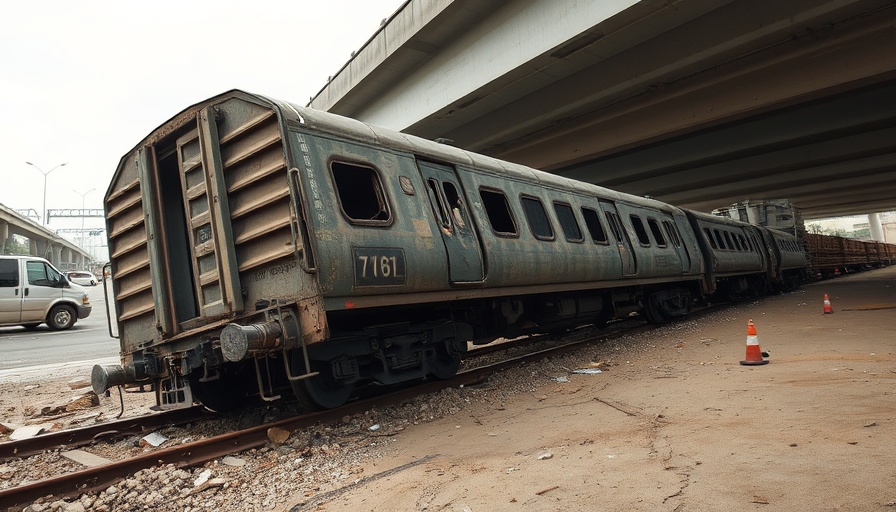
Significant Train Derailment in Houston's Fifth Ward
In a concerning event near Carr Street in Houston's Fifth Ward, seven train cars derailed under US 59, leading to an extensive response from local and federal officials. The incident took place early in the morning, bringing traffic to a standstill in the area, impacting commuters and raising safety concerns for nearby residents.
Understanding the Implications of Train Derailments
Train derailments, while relatively uncommon, can have serious ramifications not just for those involved but for the surrounding community and infrastructure. According to the Federal Railroad Administration, over the past decade, rail accidents have been steadily declining. However, when they occur, they necessitate swift action to ensure the safety of both the public and the environment. In this case, Union Pacific Railroad, the operator of the affected train, has mobilized resources to manage the situation.
Emergency Response and Community Impact
The derailment prompted an immediate emergency response team to evaluate the situation and mitigate any risks associated with the wreck. Gas leaks, hazardous materials, and structural integrity of surrounding infrastructure can amplify the dangers during such incidents. This is a poignant reminder of the complexities involved in ensuring railroad safety and the interconnectedness of our transportation systems.
Local Reactions and Concerns
Residents near the derailment site have expressed anxiety over transportation safety and the ability of emergency services to respond swiftly to such crises. Local community leaders have called for inspections of nearby train routes and a re-evaluation of emergency preparedness among transit authorities. The tragic reality is that many Houstonians feel the strain of living in close proximity to one of the country’s busiest railroads, and incidents like this raise legitimate concerns about long-term safety.
The Bigger Picture: National Rail Safety Trends
While this incident specifically highlights challenges in Houston, it's essential to view it within the broader context of national rail safety. Over the past few years, various parts of the U.S. have seen substantial investments in rail infrastructure aimed at modernizing systems and reducing the risk of accidents. Yet, calls for stricter regulations and better safety protocols are part of an ongoing discussion among lawmakers and industry experts.
Potential Policy Changes on the Horizon
Following this derailment, there may be a renewed push for stricter regulations to enhance rail safety across the U.S. Transportation officials are tasked with not only examining the cause of this derailment but also proactively addressing concerns raised by communities affected by similar incidents in the past.
Future Predictions: What Can We Expect?
As investigators assess the aftermath of the derailment, we might see changes in how rail operators manage their operations and safety standards. Experts predict that advancements in technology, such as automated safety systems, could play a crucial role in preventing future derailments and enhancing the overall safety of rail travel.
Conclusion: Staying Informed Matters
As developments unfold surrounding the Houston train derailment, it's crucial for individuals and communities to remain informed about rail safety and their risks. Continued dialogue among city officials, transit authorities, and affected residents will be vital in not only addressing immediate safety concerns but also in crafting long-term policies that prioritize community safety.
Ultimately, as citizens, being aware of the implications of incidents like the Houston derailment empowers us to engage with our local leaders and advocate for change. Stay tuned for updates regarding this unfolding situation and consider how your local policies can be influenced by active community involvement.
 Add Element
Add Element  Add Row
Add Row 



Write A Comment